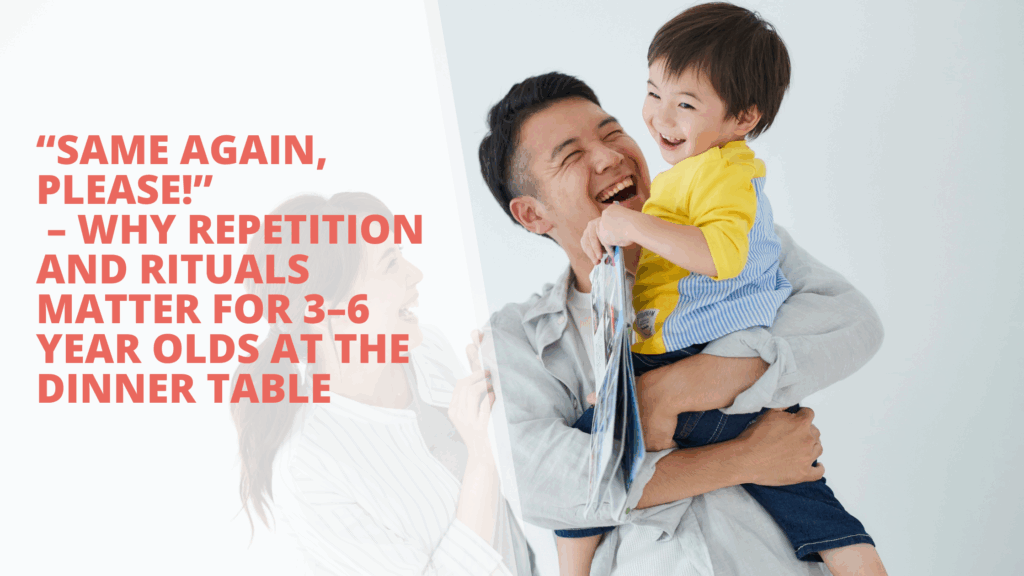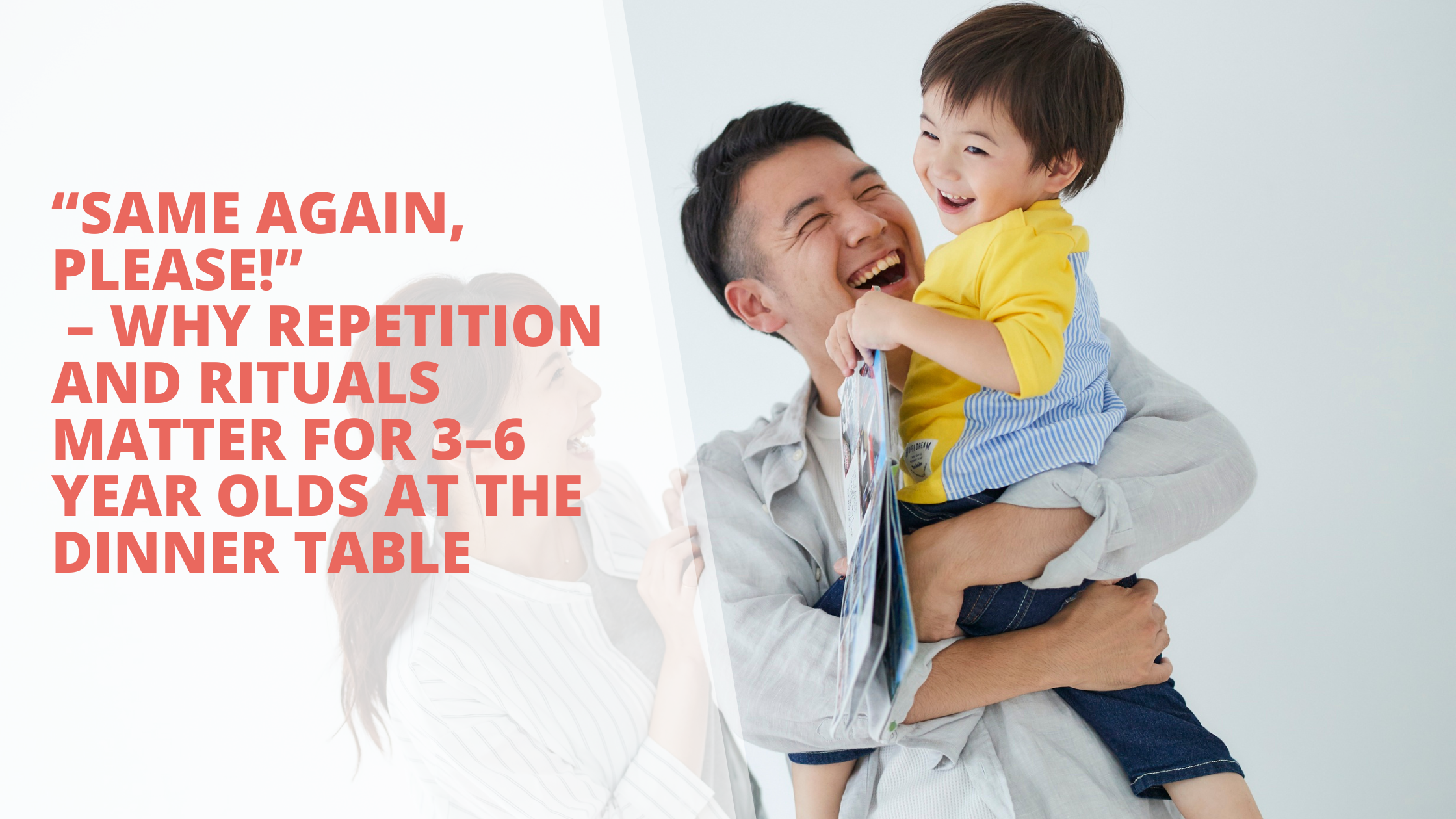
If you’ve ever had a 4-year-old beg for the same bedtime story five nights in a row or insist on sitting in the exact same spot at dinner, you’re not alone.
For 3 to 6 year olds, repetition isn’t boring. It’s beautiful.
It’s how they make sense of their world, feel safe, and know what to expect.
And when it comes to the dinner table, simple rituals can become powerful tools for connection, no grand gestures required.
“Repetition isn’t boring to a child—it’s how they feel safe and seen.”
Why Repetition and Rituals Matter
At this stage of development, children are building trust in the world around them. Their days are full of new experiences and learning. By the time dinner rolls around, many are tired, overstimulated, or emotionally spent. This is where rituals shine.
🟡 They create a sense of predictability.
A familiar rhythm, like lighting a candle, saying one thing you’re grateful for, or always starting dinner with a question, gives kids something to anchor to.
🟡 They signal safety.
Repeated actions tell your child: this is our space, this is your place, and you belong here.
🟡 They invite participation.
Children love to take ownership. Let them choose the “starter question,” set the table, or lead a short “cheers” ritual it builds pride and belonging.
3 Simple Rituals You Can Start Tonight
- The “One Question” Ritual
Each night, start dinner with one question:
- What made you smile today?
- What’s something new you learned?
- What’s one thing you want to do tomorrow?
Make it part of your routine so your child knows to expect it, and looks forward to it.
- The “Light and Listen” Ritual
Light a small candle or turn off overhead lights and eat by lamp or fairy lights. When the candle is lit, everyone takes turns speaking while others listen. It becomes a physical signal for “it’s time to be present.” - The “Help Set the Table” Ritual
Invite your child to set one thing on the table each night: napkins, cutlery, placemats, a favourite toy guest. When they know what’s “theirs to do,” they’ll show up ready.
“When a child knows what to expect, they’re more able to be themselves.”
What to Expect When You Start
It won’t always go perfectly. That’s okay. The power of rituals isn’t in performance, it’s in presence.
Some nights will be silly. Others chaotic. But over time, these small, repeated moments become part of your family culture.
And years from now, when your child thinks of home, it won’t be the fancy meals they remember, it will be the feeling of being seen, heard, known and wanted at the table Which unfortunately this is something I did not.
Let me finish with this… our children’s brains are forming neural pathways that will be formed forever and having a ritual like one regular dinner together can help shape their little brains. This might seem super simple… a dinner together once a week but… it really could be very impactful for our little ones.
Check out this blog I wrote on the importance of having dinner together even when our children are yet to start talking.
“Rituals at the table say: You belong here. You matter.”

